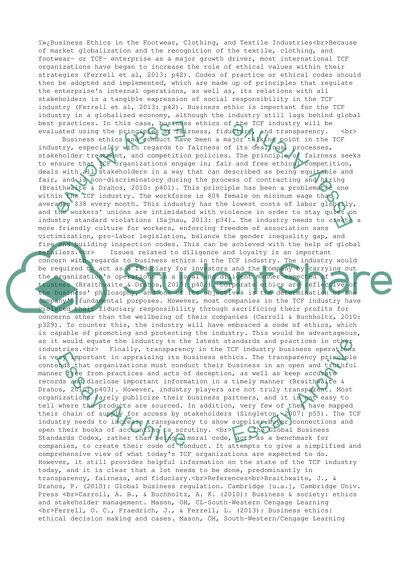Retrieved from https://studentshare.org/management/1623429-evaluate-business-conduct-in-the-clothing-textile-and-footwear-industries-using-three-ethical-principles-of-the-global-business-standards-codexltbusiness-ethicgt
https://studentshare.org/management/1623429-evaluate-business-conduct-in-the-clothing-textile-and-footwear-industries-using-three-ethical-principles-of-the-global-business-standards-codexltbusiness-ethicgt.


